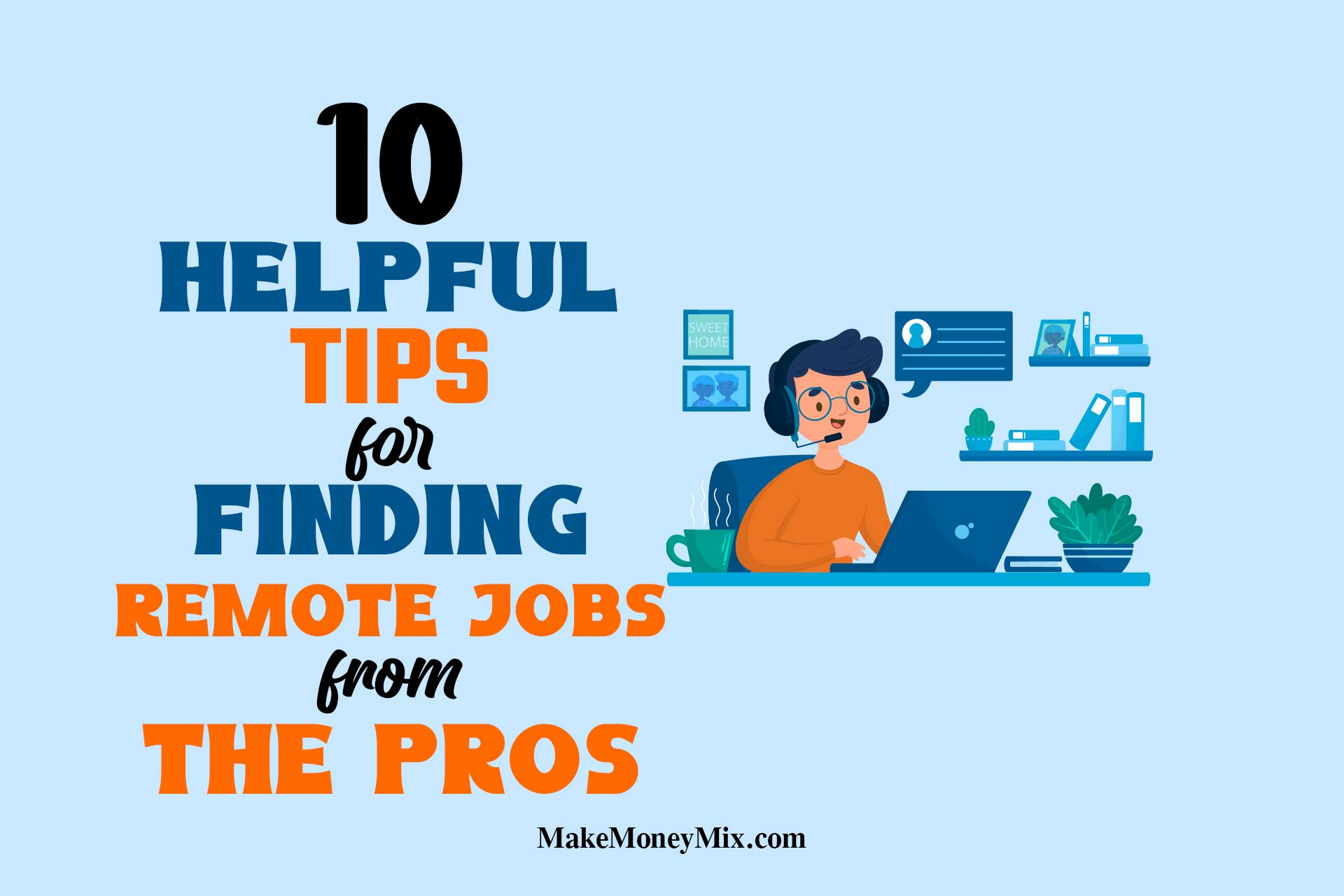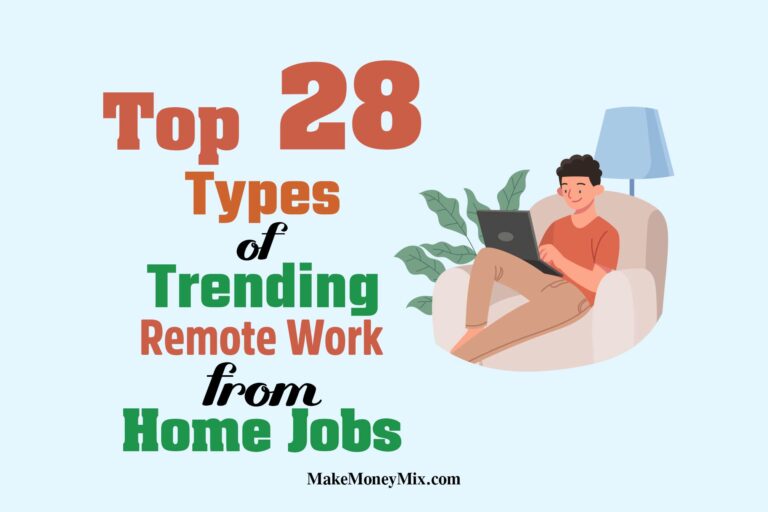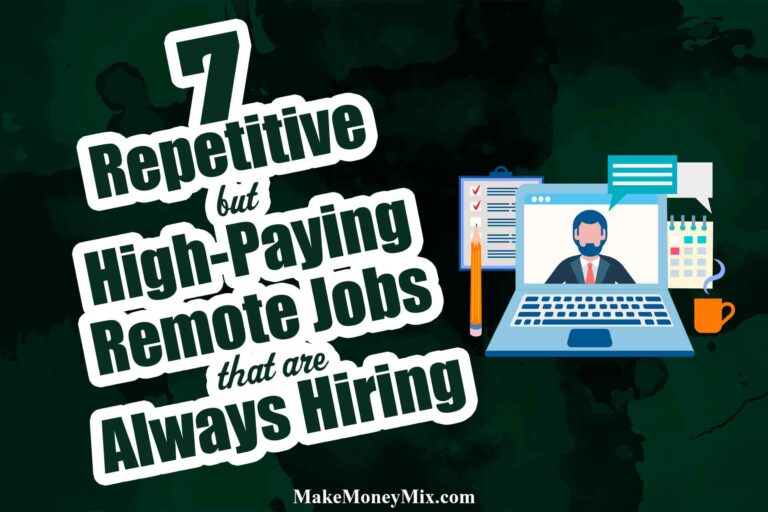10 Helpful Tips for Finding Remote Jobs from the Pros

So, you want to snag a remote job and join the ranks of pajama-clad professionals sipping coffee from the comfort of their couch?
You’re not alone.
The hunt for remote work is more competitive than ever. But don’t worry, I’ve been in the trenches, and I’m here to spill the secrets the pros actually use.
Ready to ditch the commute and finally mute that office printer forever?
Let’s get into it.
1. Know What You Want (Seriously, Get Specific)
Ever try ordering at a restaurant when you have no idea what you’re hungry for?
That’s what remote job hunting feels like if you don’t know your strengths or interests.
Take a minute (or, let’s be honest, an hour) to figure out what you actually want to do.
- List your strengths and passions.
- Decide on your ideal role, salary, and schedule.
- Think about company culture. Do you want a chill startup or a big corporate vibe?
The more specific you get, the less time you’ll waste scrolling through jobs that make you want to nap.
Pro tip: Write down your non-negotiables. Trust me, “no video calls before 9 a.m.” is a perfectly valid requirement.
2. Use the Right Job Boards (Ditch the Generic Ones)
You wouldn’t look for vegan recipes on a steakhouse menu, right?
The same goes for remote jobs. Skip the all-purpose job boards and head straight for the ones built for remote work:
- We Work Remotely
- FlexJobs
- Remote.co
- Indeed (with remote filters)
- Remote OK
These sites are packed with legit remote gigs, and you can filter by industry, experience, and even time zone.
Set up daily alerts so you don’t miss out on fresh postings.
FYI: Some boards charge a fee (like FlexJobs), but IMO, it’s worth it for peace of mind. There are no scams, just real jobs.
Read More: 19 Places to find REMOTE Customer Service Jobs Online
3. Optimize Your Resume and LinkedIn for Remote Work
Let’s be real: recruiters are basically detectives. They hunt for keywords, and if your resume doesn’t have them, you’re invisible.
Sprinkle in terms like “remote,” “virtual collaboration,” and “distributed team”—especially if you’ve worked remotely before.
- Highlight remote-specific skills: self-motivation, time management, digital communication.
- Tailor your resume for each job. Yes, it’s a pain. Yes, it works.
- Update your LinkedIn headline: Try “Marketing Specialist | Remote Work Enthusiast” or “Project Manager | Fully Remote Roles Welcome.”
Have you ever wondered why some people get recruiter messages, and you don’t? It’s all about those keywords.
4. Network Like Your Career Depends on It (Because It Does)
I know, I know—networking gets a bad rap.
However, most remote jobs never even hit the job boards. They’re passed around like secret family recipes.
- Connect with remote recruiters on LinkedIn.
- Join remote work communities on Slack, Discord, or Reddit.
- Let your network know you’re looking.
You’d be surprised how many people are happy to refer you if you just ask. And no, you don’t have to be the person who spams everyone. Just be genuine.
Also Check: 15 Online Typing Jobs You Can Start Today [Make $3,000+ per month]
5. Master the Art of Keyword Research
If you want to beat the bots (a.k.a. applicant tracking systems), you need to speak their language.
Study job ads and top LinkedIn profiles in your field. Steal—uh, I mean, borrow—their keywords and add them to your resume and online profiles.
- Look for terms like “remote-first,” “telecommute,” “distributed team,” etc.
- Use Google’s site search for company career pages: site:company.com remote plus your job title.
It’s like SEO for your career. Who knew those hours spent Googling cat memes would finally pay off?
6. Tailor Every Application (Yes, Every Single One)
I used to send the same resume to every job. Guess how many interviews I got? Zero. Don’t be me.
- Customize your resume and cover letter for each job.
- Mirror the language in the job description.
- Highlight your remote work experience and relevant skills.
Hiring managers can spot a generic application a mile away. Make them feel special because, apparently, they like that.
Read More: Top 28 Types of Trending Remote Work from Home Jobs
7. Show Off Your Digital Toolbox
Remote jobs = digital everything. If you can’t use Zoom, Slack, or Trello, you’ll look like you just crawled out of a cave.
- List your digital tools: Zoom, Slack, Asana, Trello, Google Workspace, etc.
- Give real examples: “Led weekly virtual meetings with a team across 3 time zones.”
The more you show your tech-savvy side, the more you stand out. Ever tried explaining to your grandma how to use FaceTime?
If you survived that, you’re basically qualified.
8. Prepare for Virtual Interviews (Pants Optional, But Recommended)
Remote interviews are a whole different beast. You need to:
- Test your tech before the call.
- Find a quiet, well-lit space (bonus points if your background isn’t a pile of laundry).
- Practice answering questions about remote work, such as “How do you manage time?” or “How do you communicate with a team?”
And yes, wear pants. You never know when you’ll have to stand up. Don’t ask me how I know.
9. Research Companies Like a Detective
Not every company “gets” remote work. Some just want to save on office snacks. Do your homework:
- Check company reviews on Glassdoor and Indeed.
- Look for remote-friendly policies and culture.
- Follow companies on social media to get a sense of their brand’s vibe.
You want a company that actually supports remote workers, not one that micromanages you from 1,000 miles away.
10. Stay Persistent (And Don’t Take Ghosting Personally)
Here’s the truth! Remote job hunting can feel like yelling into the void.
You’ll get ghosted. You’ll get rejected. You’ll wonder if anyone actually reads your applications.
But here’s what the pros know: Persistence wins.
- Apply early and often—remote jobs fill up fast.
- Follow up after interviews or applications.
- Keep learning and tweaking your approach.
I once sent out 50 applications before landing my first remote gig. Was it fun? Nope. Was it worth it? Absolutely.
Now, I get to work from my favorite coffee shop, and my “commute” is just walking from my bed to my desk. Living the dream, IMO.
Bonus: Use AI and Automation (But Don’t Let Robots Do All the Work)
There are some killer tools out there to help you automate the boring stuff:
- JobCopilot: Automates your job search and applications.
- ChatGPT: Helps you craft killer resumes and cover letters.
- Job alerts: Most job boards let you set up alerts for new postings.
Let the robots do the heavy lifting, but remember: the human touch still matters. Don’t send a generic, AI-generated cover letter unless you want to sound like a robot.
Also Check: 21 BEST Websites to Find Remote Jobs Online
Wrapping Up: Your Remote Job Awaits
Finding a remote job isn’t magic; it’s about strategy, persistence, and a little bit of luck. Use these pro tips, keep your sense of humor, and don’t be afraid to ask for help.
Remember, every “no” gets you closer to a “yes.” And when you finally land that remote gig, celebrate with a commute-free morning and an extra cup of coffee. You’ve earned it!
Now, go out there and show those hiring managers what you’ve got.
And if you ever need a pep talk (or just want to brag about your new remote job), you know where to find me. Good luck!




![How To Find Remote Jobs with No Experience [Top 5 Steps]](https://makemoneymix.com/wp-content/uploads/2025/08/How-To-Find-Remote-Jobs-with-No-Experience-Top-5-Steps-768x512.jpg)


